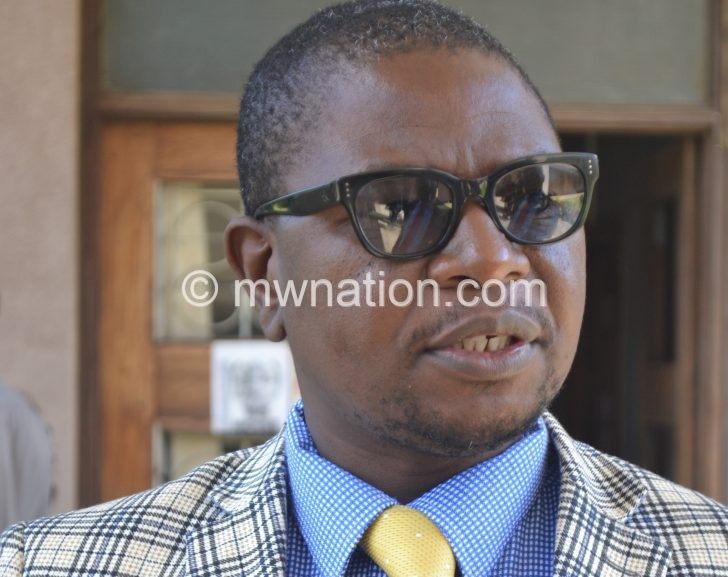UDF, others back 50+1 system; DPP undecided
Opposition political parties represented in Parliament, including United Democratic Front (UDF), say they will pass and ensure ultimate implementation of the 50+1 electoral system proposal of electing the country’s Head of State.
In separate interviews with The Nation, the leadership of the opposition parties said they were all geared to support the Bill seeking to actualise proposed electoral reforms ahead of the 2019 Tripartite Elections.

However, governing Democratic Progressive Party (DPP) said it is yet to decide its position. Ironically, DPP’s political bed fellow, UDF is in support of the new system endorsed by the Malawi Law Commission.
The parties’ position comes in the wake of the recent engagement by quasi-religious body, Public Affairs Committee (PAC), with leader of opposition in Parliament Lazarus Chakwera who is also Malawi Congress Party (MCP) president seeking his support, among other issues.
Chakwera threw his weight behind the majoritarian system of electing the President and further said he would lobby other opposition parties to support the Bill once tabled in Parliament.
MCP, People’s Party (PP), UDF and Alliance for Democracy (Aford) said they would vote in support of the Bill on the proposed electoral reforms.
This is the second time in recent weeks the UDF has given a contrary stand to the DPP. During a rally the party’s president Atupele Muluzi addressed in Blantyre two weeks ago, he could not decisively say his party status regarding its relationship with DPP in the 2019 Tripartite Elections.
Muluzi’s position was contrary to what DPP leader President Peter Mutharika told a gathering in Mangochi a few months ago that the two parties’ coalition was intact and would remain so until the 2019 polls.
Yesterday, Chakwera said yesterday, as leader of opposition, he would lobby for support from fellow opposition parties during caucuses of opposition political parties.
He said: “Sometimes, we would hold a joint caucus with all parties in opposition. We lobby and agree on the best possible course of action bearing in mind what would be for the common good of Malawians.
“Specifically in the forthcoming reforms we shall look at what mischief they are addressing and seek a holistic response to such.”
Chakwera said he did not anticipate challenges in passing the Bill because Malawians were waiting to see action on the reforms and not mere talk.
UDF spokesperson Ken Ndanga said: “Our stand is that we will support the proposition. We have made consultations within the party before and after the proposition and the thinking of the majority is that we should support it.”
He said as a sovereign party, the UDF had always supported the system from the time the Special Law Commission solicited its views on the issue.
On his part, PP acting president Uladi Mussa said if adopted the system would ensure that the elected person has strong mandate from the people and will treat Malawi as one nation when governing and not based on regional or tribal inclinations.
He said: “Zambia implemented it and we don’t see any challenges why we should have problems if we follow suit. It’s imperative that the leader is put in power by the majority and not minority like the current case. That will ensure leaders do not think along regional lines, but nationally.”
Aford president Enock Chihana, speaking from South Africa through his spokesperson Saulos Thindwa, said the party would promote the system as it contains aspirations of Malawians, mainly those that cast their votes.
But DPP director of elections Kondwani Nankhumwa could not state his party’s position saying “we have not been communicated by government so we don’t have the details and content of the Bill plus their meaning”.
He said: “Again, we haven’t met as a party to discuss the issue and agree on the position. So, until such a moment it will be difficult for us to state our stand.”
The Malawi Law Commission has also backed the introduction of the system while maintaining the First-Past-The-Post (FPTP) system to consolidate acceptability and legitimacy of the elected Head of State.
All except two presidential elections in the country have been won by candidates with less than the absolute majority of votes.
In the most recent elections of May 2014, Mutharika just got 36.4 percent of the total votes while in 2009 his brother Bingu wa Mutharika (deceased) had unprecedented 66.17 percent coming from a meagre 35.97 percent in 2004.






That’s good